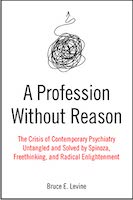Get Up, Stand Up”: Do Americans Have What It Takes to Stand Up to Corporate Power and Does Wisconsin Offer Hope?
Bruce Levine, in an interview with Susan Warner, discusses his upcoming book “Get Up, Stand Up,” which analyzes why Americans have been crushed into inaction and how recent events in Wisconsin offer hope for change.
The Myth of U.S. Democracy and the Reality of U.S. Corporatocracy
Polls show that on the major issues of our time — the Afghanistan and Iraq wars, Wall Street bailouts, and health insurance — the opinion of We the People has been ignored on a national level for quite some time. While the corporate media repeats the myth that the United States of America is a […]
Phil Ochs, Tom Paine, and American Redemption
In the 1960s, singer/songwriter/revolutionary Phil Ochs was sometimes described as “Tom Paine with a guitar.” Without regard for political correctness, both Paine and Ochs confronted all illegitimate authorities and hypocrisy. America paid them both back by marginalizing them at the end of their lives and ignoring them for decades following their deaths. With Phil Ochs: […]
5 Myths About Depression Treatments
Good News for Critically Thinking Depression Sufferers
A warning: for people satisfied with their standard depression treatments, debunking myths about them may be troubling. However, for critically thinking depression sufferers who have not been helped by antidepressants, psychotherapy, or other standard treatments, discovering truths about these treatments can provide ideas about what may actually work for them.. . .
Anatomy of an Epidemic
Magic Bullets, Psychiatric Drugs, and the Astonishing Rise of Mental Illness in America
Robert Whitaker, a former Boston Globe reporter, was curious about why there has been such a large increase of disabling mental illness in the United States. His book, Anatomy of an Epidemic: Magic Bullets, Psychiatric Drugs, and the Astonishing Rise of Mental Illness in America (Crown Publishers, 2010), begins with these data points: in 1987, the U.S. mental illness disability rate was 1 in every 184 Americans, but by 2007 the mental illness disability rate had more than doubled to 1 in every 76 Americans.
Drugging Poor Kids
If Poor, US Children More Likely to be Prescribed Antipsychotics — Even When Not Psychotic
Children covered by Medicaid are far more likely to be prescribed antipsychotic drugs than are children covered by private insurance, and Medicaid-covered kids have a higher likelihood of being prescribed antipsychotics even if they have no psychotic symptoms. This is reported in the May19, 2010 Journal of American Medical Association (JAMA) article, “Studies Shed Light on Risks and Trends in Pediatric Antipsychotic Prescribing.”
The Astonishing Rise of Mental Illness in America
A Conversation with Robert Whitaker
In 1987, prior to Prozac hitting the market and the current ubiquitous use of antidepressants and other psychiatric drugs, the U.S. mental illness disability rate was 1 in every 184 Americans, but by 2007 the mental illness disability rate had more than doubled to 1 in every 76 Americans. Robert Whitaker was curious as to what was causing this dramatic increase in mental illness disability. The answers are in his new book, Anatomy of an Epidemic: Magic Bullets, Psychiatric Drugs, and the Astonishing Rise of Mental Illness in America (Crown Publishers, April 2010
Are Americans a Broken People? Why We’ve Stopped Fighting Back Against the Forces of Oppression
A psychologist asks: Have consumerism, suburbanization and a malevolent corporate-government partnership so beaten us down that we no longer have the will to save ourselves?
A psychologist asks: Have consumerism, suburbanization and a malevolent corporate-government partnership so beaten us down that we no longer have the will to save ourselves?
Can people become so broken that truths of how they are being screwed do not “set them free” but instead further demoralize them? Has such a demoralization happened in the United States?
Liberation Psychology for the U.S.
Are we too demoralized to protest?
The term “liberation psychology” was popularized by Ignacio Martin-Baró (1942-1989), the psychologist, priest, and activist who was assassinated in El Salvador by government troops. Martin-Baró focused on the oppression of his fellow Salvadorans, Central Americans, and Latin Americans. It is increasingly apparent that U.S. citizens need Martin-Baró’s insights along with their own special kind of liberation psychology.
Protect Us From Our Friends
When Liberals and Conservatives are Two Side of the Same Oppressive Coin
For many people I know — especially many young people, Native Americans, and others alienated from American dominant culture — the difference between liberals and conservatives is only in technique used to coerce conformity and gain control.




